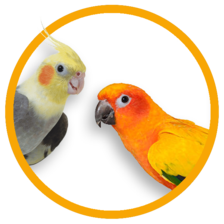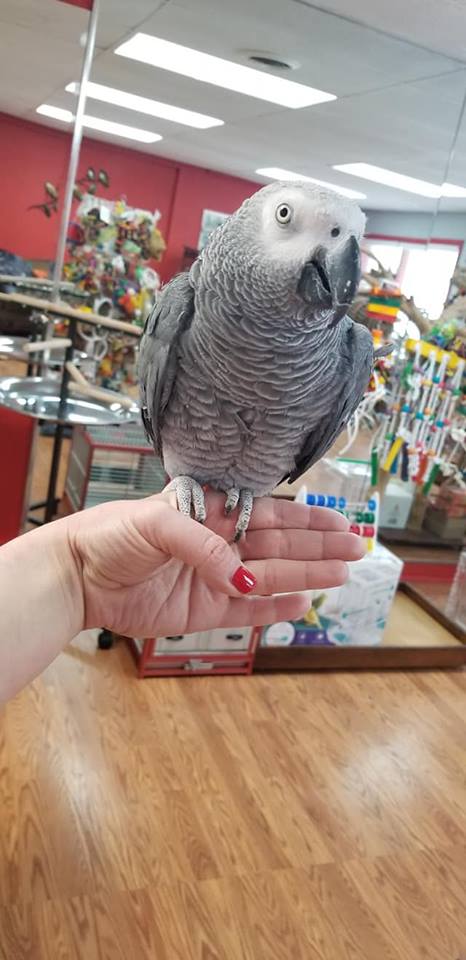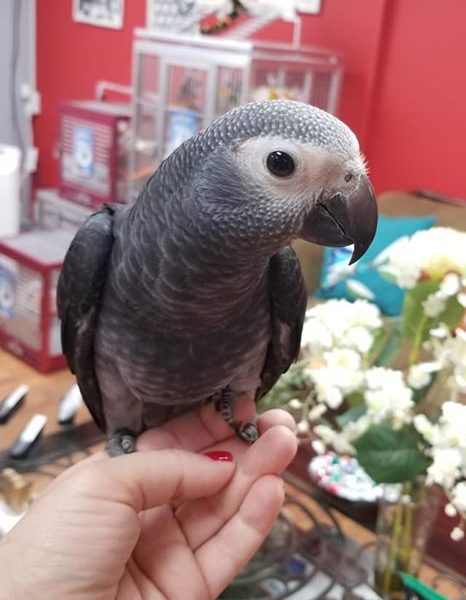African Grey Parrots for Sale
African grey parrots have been pets for thousands of years—there are records of these birds as household pets in biblical times. It has a fascinating ability to reason and an uncanny talent for accurately mimicking words and phrases. It can also understand human speech, which has helped to catapult this bird to stardom in research circles and the pet trade. A well-trained African grey can learn hundreds of words, phrases, and sounds.
The African Grey Parrot (Scientifically known as Psittacus erithacus) is a moderate-sized parrot species commonly found in Africa’s equatorial regions, justifying its name. One of the most intelligent birds and a perfect human companion, the bird is a common choice as a pet. Adopting and raising a grey parrot involves a lot of energy and time invested, but living with it is a rewarding experience nonetheless.
Housing
The cage for an African Grey Parrot should be at least 2ftX2ftX3ft in size. The bird should be given toys and minimum three perches inside the cage, but make sure there is no shortage of space due to these additional items. It is more peaceful for the bird if the cage is hanged or placed in a corner of the room, above the ground. The cage should ideally be far from doorways, windows or air vents and should be in a draft-free area.
Temperament
The smart bird is always busy, either with interacting with its owner or playing with its toys. In the meantime, it can imbibe the sounds and words it is exposed to, and once they get a new word by heart, repeating them is a common practice, which is why you should always be careful while talking in front of it. Even the bird is an expert at imitating the sound of a calling bell and pressure cooker if it has heard them.
The parrot loves to get to know new people and even “talk” to them, and sometimes it becomes excessively attached to its owner and demands his/her undivided attention. When trained properly, it can spend some quality time outside the cage,, and the parrot would love it. Whether there is something on the radio or a tv show, the bird enjoys all sorts of entertainment for its enrichment besides playing with toys. Head bobbing is a common body language for the bird,, meaning it is wishing to communicate with you or wanting to play.
When bored, either caused by too much of the same activities or doing nothing for an extended period, the bird indulges in self-destructive behavior like plucking its feather and making loud noises to express their disapproval of the situation. This situation could be so serious that you might want professional help to fix it.
Feeding
Give the bird fresh fruits, pelleted supplements, and vegetables rich in beta-carotene (fresh kale and cooked potatoes). Occasional treats like bread, sprouts, and salads, hemp are also recommended.
Don’t give the bird caffeinated or alcoholic products, salted foods, uncooked beans, asparagus, onions, chocolate, and avocado, as they are highly toxic for parrots.
Care
Training and keeping the bird busy are the basic two things for you, which is a serious commitment. Interact with your bird and engage in conversation, as this is good for mental exercise.
As far as grooming is required, this bird needs daily bathing either from a shallow tray or mist spray (whichever your bird likes). Professionals should do clipping of flight feathers and trimming of nails.



Reviews
There are no reviews yet.